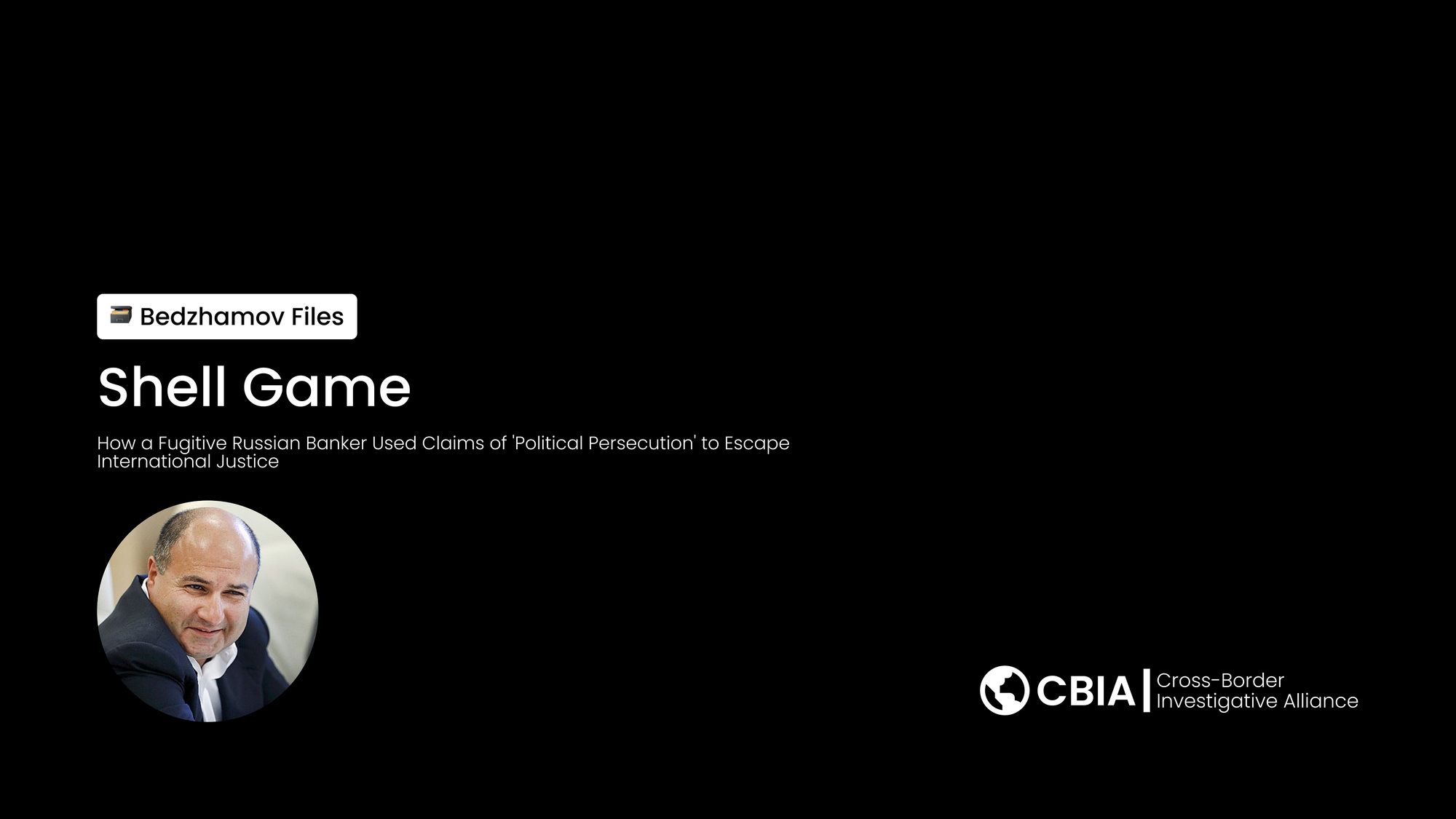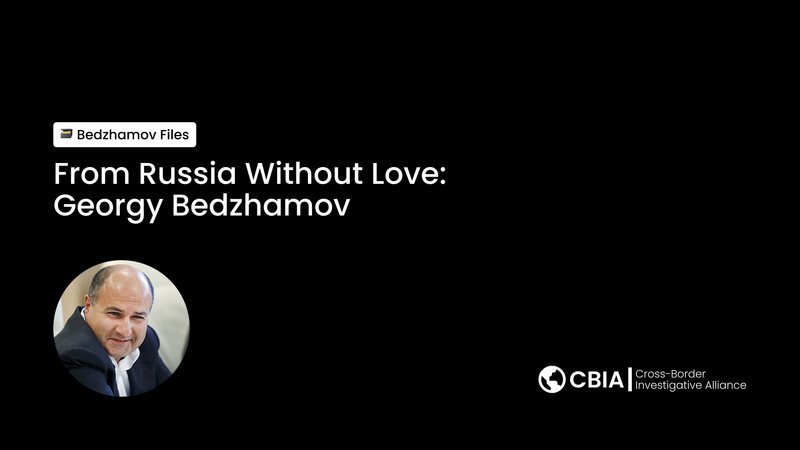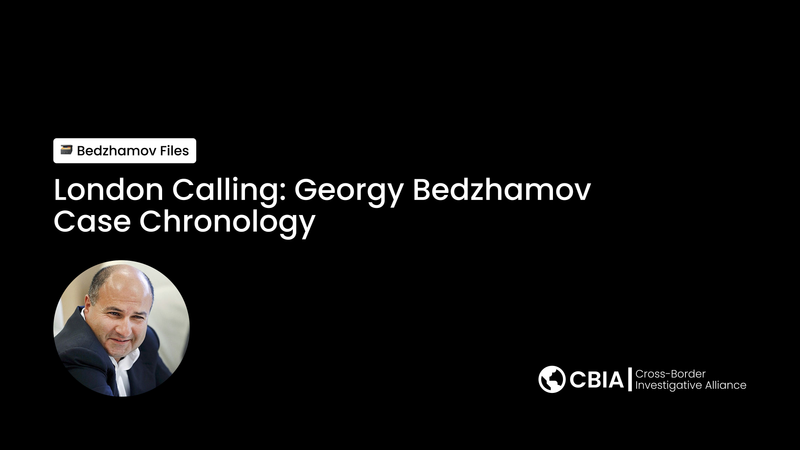Shell Game: How a Fugitive Russian Banker Used Claims of 'Political Persecution' to Escape International Justice

When Georgy Bedzhamov's financial empire collapsed amid accusations of massive fraud, the former co-owner of Russia's Vneshprombank found himself in an increasingly dangerous position. Facing charges of embezzling over $1.34 billion, the banker embarked on a sophisticated legal odyssey across three jurisdictions, ultimately using claims of "political persecution" to neutralize an Interpol Red Notice and escape extradition to Russia.
From Banking Empire to Criminal Allegations
Bedzhamov's troubles began with the spectacular downfall of Vneshprombank, once Russia's 40th largest lender by assets.[4] When the Central Bank of Russia revoked the bank's license on January 21, 2016, investigators alleged that Bedzhamov and his sister, Larisa Markus (the bank's president), had orchestrated elaborate fraud schemes involving loan agreements made without any intention of repayment.[4] The estimated damage exceeded 932 million rubles (over $16 million), though court documents later revealed allegations of fraud exceeding $1.34 billion.[2]
In February 2016, the Moscow Tverskoi Court sanctioned Bedzhamov's arrest in absentia, placing him on an international wanted list for fraud charges.[4] His sister was arrested in December 2016 on related fraud charges.[3][4]
The Monaco Gambit
Bedzhamov's first major test came in Monaco, where he was detained by police in mid-April 2016 at Russia's behest.[3][4] For three months, the principality's courts weighed Russia's extradition request against Bedzhamov's claims that he faced political persecution.
On July 12, 2016, the Monaco Court of Appeal delivered its verdict: extradition refused.[3][4] In September 2016, Prince Albert II of Monaco made the final decision not to extradite Bedzhamov to Russia.[4] The grounds for refusal were not detailed in available public records, but the decision marked Bedzhamov's first successful deployment of the political persecution defense.
Interpol's Rare Intervention
In a highly unusual move that underscored the politically charged nature of the case, Interpol itself intervened to remove Bedzhamov from its international wanted list. By November 2016, the international police organization had concluded that "the prosecution in the country initiator does not correspond with the goals and objectives of Interpol."[4]
This decision effectively stripped Russia of one of its most powerful tools for international law enforcement cooperation. Interpol's withdrawal from the case meant that other countries could no longer rely on the organization's assessment of the charges' legitimacy, forcing each jurisdiction to make its own determination about the political nature of the allegations.
London: The Final Stand
From Monaco, Bedzhamov relocated to London, where he acquired substantial assets including property at 17 Belgrave Square valued in the millions.[2] When Russia's General Prosecutor's Office sent an extradition request to UK authorities in February 2017,[4] Bedzhamov and his legal team prepared for what would become a protracted legal battle.
The case ultimately reached Westminster Magistrates' Court, where Bedzhamov faced "abusive and politically motivated criminal allegations presented as offences of fraud."[1] His defense team, led by Ben Cooper QC and Anthony Vaughan from Doughty Street Chambers, argued that extradition would violate Bedzhamov's rights under the European Convention on Human Rights.
The UK Home Secretary agreed with this assessment, finding that Bedzhamov's removal to Russia would indeed violate his human rights.[1] Based on this determination, the defense successfully argued that the extradition proceedings constituted an abuse of process under section 93(6A) of the Extradition Act 2003.
On September 20, 2021, District Judge Snow delivered the final blow to Russia's extradition efforts, ruling that it would be "an abuse of process of the Court to permit Russia's extradition request to continue."[1] The proceedings were stayed and Bedzhamov was discharged, with costs awarded against the Russian Federation.
A Blueprint for Evading International Justice
Bedzhamov's case illuminates how sophisticated defendants can leverage claims of political persecution to neutralize international law enforcement tools. His success rested on several key factors:
Forum Shopping: By moving between jurisdictions with strong human rights protections, Bedzhamov could choose the most favorable legal environment for his defense.
Timing: The deteriorating relationship between Russia and Western democracies provided crucial context for his political persecution claims.
Legal Expertise: High-caliber legal representation familiar with human rights law and extradition procedures proved essential in crafting successful defenses.
Persistence: Rather than accepting defeat in any single jurisdiction, Bedzhamov demonstrated the value of sustained legal resistance across multiple forums.
The Broader Implications
The case raises uncomfortable questions about the balance between protecting individuals from political persecution and ensuring that international cooperation in criminal justice remains effective. While the courts in Monaco and the UK may have correctly identified genuine concerns about the political motivation behind the charges, their decisions also demonstrate how this protection can be exploited.
For international law enforcement, the Bedzhamov case serves as a cautionary tale about the limitations of traditional cooperation mechanisms when geopolitical tensions intrude into criminal justice. Even Interpol, designed to facilitate neutral police cooperation, found itself unable to navigate the political dimensions of the case.
As global financial crime becomes increasingly sophisticated and international, the need for effective cross-border law enforcement cooperation has never been greater. Yet cases like Bedzhamov's suggest that existing mechanisms may be inadequate when faced with defendants who can credibly claim political persecution while simultaneously exploiting the very democratic institutions designed to protect them.
The ultimate irony is that Bedzhamov's alleged victims – depositors and creditors of Vneshprombank – remain without recourse, while the man accused of defrauding them enjoys the protection of the very legal systems that the alleged proceeds of his crimes may have helped him access.
Sources:
[1] Doughty Street Chambers. "Extradition to Russia discharged as an abuse of the process of the Court." Retrieved May 24, 2024.
[2] UK Courts and Tribunals Judiciary. "Vneshprombank v Bedzhamov Judgement." Retrieved May 24, 2024.
[3] Monaco Life. "Fugitive banker still sought by Russia." Retrieved May 24, 2024.
[4] TASS Russian News Agency. "Russia's Prosecutor Office sends request to UK for extradition of banker." Retrieved May 24, 2024.



